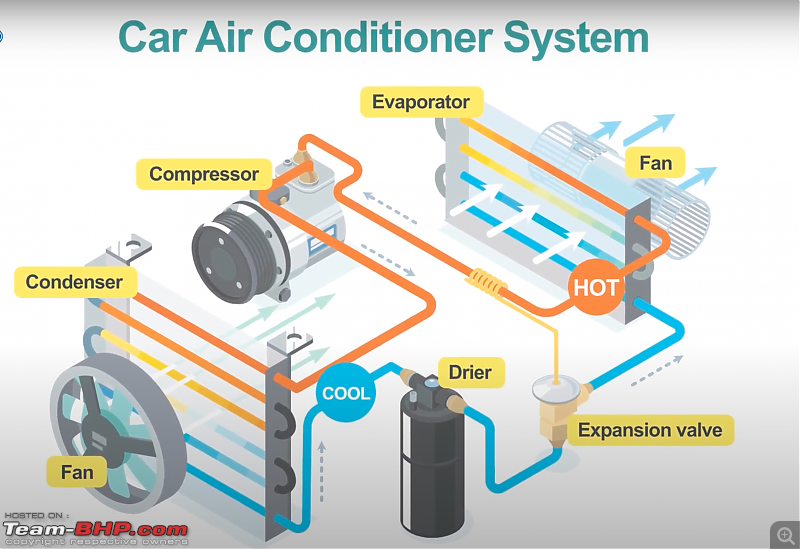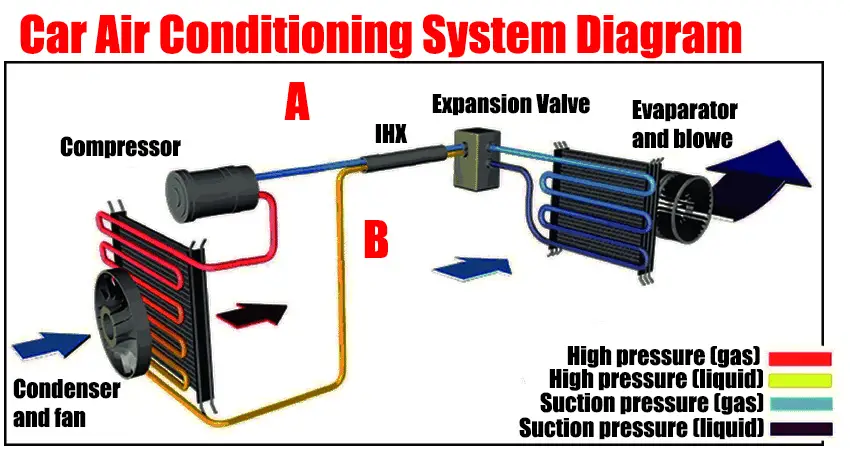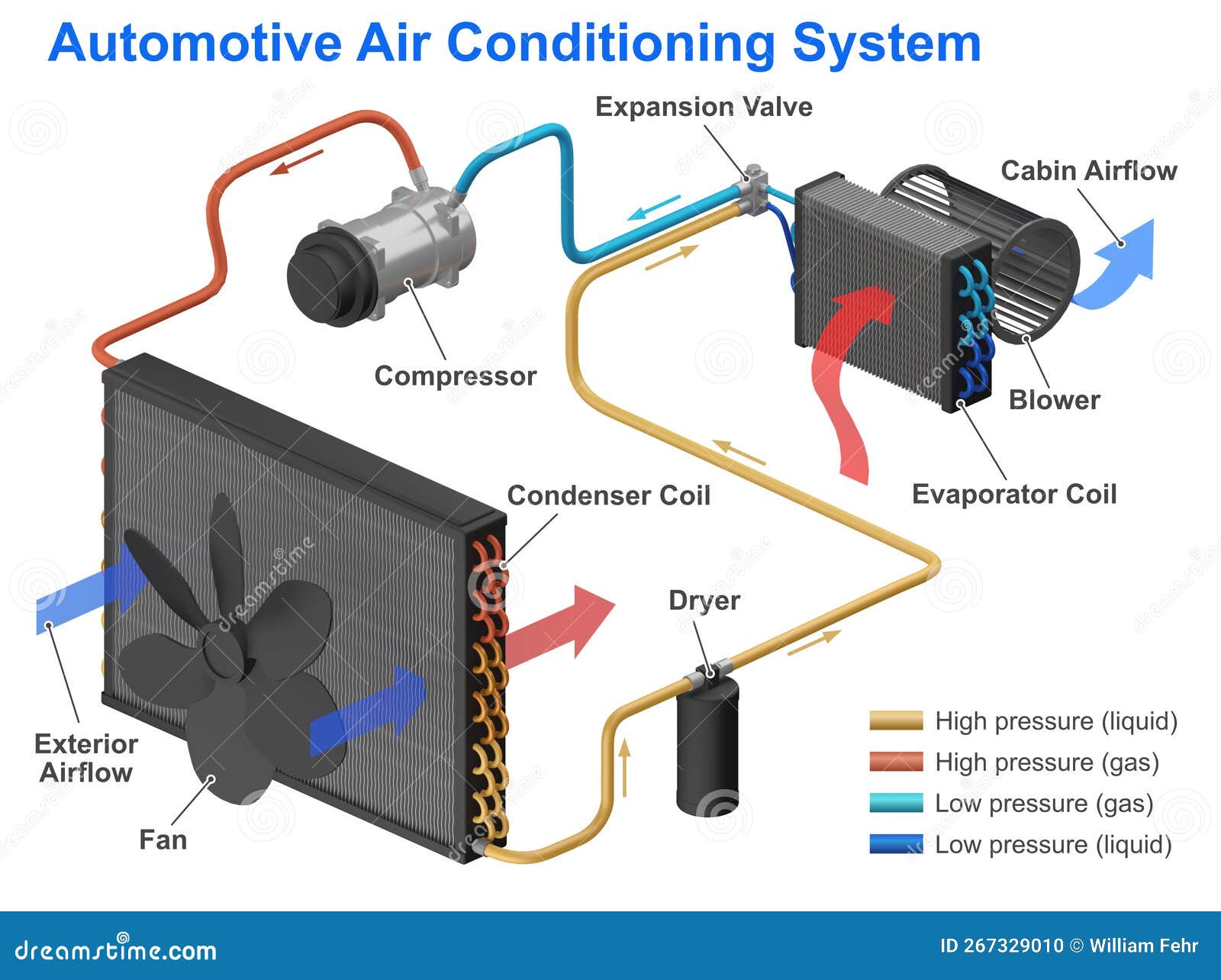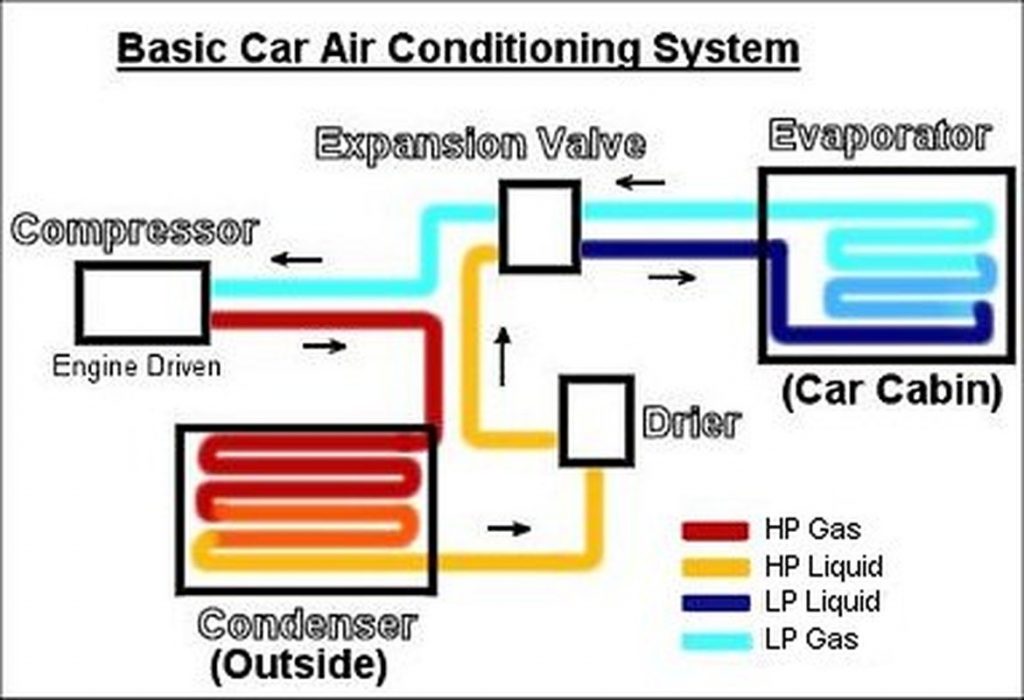Ac Going In And Out In Car While Driving

Experiencing your car's air conditioning (AC) cutting in and out while driving can be frustrating and uncomfortable, especially in hot weather. This intermittent operation signals an underlying issue that needs attention. Ignoring it can lead to more significant problems and costly repairs down the line. This guide aims to explain the common causes of this problem, helping you understand what might be happening under the hood and how to address it.
Understanding the Basics of Car AC Systems
Before diving into the reasons behind intermittent AC, it's helpful to understand the fundamental components and their roles in the cooling process. Think of your car's AC as a closed-loop system, much like a refrigerator, designed to transfer heat from inside the car to the outside.
- Compressor: This is the heart of the AC system. It compresses the refrigerant, increasing its pressure and temperature. It's driven by the engine via a belt.
- Condenser: Located in front of the radiator, the condenser releases heat from the high-pressure refrigerant as it passes through.
- Evaporator: Situated inside the dashboard, the evaporator is where the refrigerant absorbs heat from the cabin air, causing it to cool down. A blower fan then forces this cooled air into the car.
- Expansion Valve (or Orifice Tube): This component regulates the flow of refrigerant into the evaporator, controlling the pressure drop and cooling effect.
- Refrigerant: This is the working fluid that carries heat throughout the system. Think of refrigerant as the "blood" of your AC system, carrying heat from inside to outside.
These components work in harmony to provide you with a cool and comfortable ride. When one of them malfunctions, it can disrupt the entire process, leading to intermittent AC operation.
Common Causes of Intermittent AC Problems
Several factors can cause your car's AC to cycle on and off frequently. Let's explore some of the most common culprits:
1. Low Refrigerant Level
This is perhaps the most frequent reason for intermittent AC. Low refrigerant means the system cannot maintain adequate pressure and cooling capacity. The system has a low-pressure switch designed to shut off the compressor when the refrigerant level drops too low to prevent damage. The AC will cycle on briefly, attempting to cool, then shut off when the pressure drops further. This on-off cycling becomes quite noticeable.
Why does refrigerant leak? Over time, seals and hoses can degrade, leading to slow leaks. Even a tiny leak can eventually deplete the refrigerant charge.
2. Faulty Compressor Clutch
The compressor clutch is an electromagnetic device that engages and disengages the compressor. It connects the compressor to the engine's belt-driven pulley. If the clutch is failing, it may not engage consistently, causing the AC to cut out. Common symptoms include:
- AC cutting in and out, especially when the engine is hot.
- A squealing noise when the AC is engaged (indicating clutch slippage).
- Complete failure of the AC system.
The clutch may fail due to wear and tear, electrical problems, or damage from debris.
3. Electrical Issues
Electrical problems can disrupt the AC system's operation. This includes faulty wiring, relays, sensors, or even the climate control module itself. A loose connection or a damaged wire can cause intermittent AC operation.
Specifically, look at these potential electrical components:
- Relays: Relays act as switches, controlling the flow of electricity to different components. A faulty relay can cause the compressor to intermittently engage.
- Pressure Sensors: These sensors monitor the refrigerant pressure. A malfunctioning sensor can send incorrect signals to the control module, causing the AC to shut off.
- Wiring: Damaged or corroded wiring can interrupt the electrical flow, leading to intermittent AC operation.
4. Overheating Engine
If your engine is overheating, the AC system may be automatically shut off to prevent further strain. Many modern cars have a safety feature that cuts off the AC compressor when the engine temperature reaches a critical level.
Why does overheating cause AC issues? The AC system adds a load to the engine. If the engine is already struggling to maintain a safe temperature, running the AC can exacerbate the problem. The system prioritizes engine cooling to prevent damage.
5. Clogged Condenser
The condenser is responsible for dissipating heat from the refrigerant. If it becomes clogged with debris (leaves, dirt, bugs), it cannot effectively release heat. This can cause the system to overheat and shut down intermittently.
Regularly cleaning the condenser can help prevent this issue. Use a garden hose to gently rinse away any debris accumulated on the condenser fins.
6. Expansion Valve/Orifice Tube Problems
The expansion valve (or orifice tube) regulates the flow of refrigerant into the evaporator. If this component is clogged or malfunctioning, it can restrict refrigerant flow, leading to inconsistent cooling and intermittent AC operation.
A clogged expansion valve can cause the evaporator to freeze up, further hindering cooling. You might notice the AC working well for a short period, then gradually losing its cooling power before shutting off completely.
7. Faulty Evaporator Temperature Sensor
This sensor measures the temperature of the evaporator core to prevent it from freezing. If the sensor is malfunctioning, it may send incorrect signals to the control module, causing the AC to shut off prematurely, even if the evaporator is not freezing.
Diagnosing the Problem
Diagnosing intermittent AC problems can be tricky, as several factors can contribute to the issue. Here's a general approach:
- Visual Inspection: Check for obvious signs of damage, such as leaks, damaged wiring, or a clogged condenser.
- Refrigerant Level Check: Use a manifold gauge set to check the refrigerant pressure. This will give you an indication of the refrigerant level. Caution: Working with refrigerant can be dangerous. If you're not comfortable with this procedure, it's best to consult a professional.
- Compressor Clutch Inspection: Observe the compressor clutch while the engine is running. Ensure that it engages and disengages smoothly. Listen for any unusual noises, such as squealing or grinding.
- Electrical Testing: Use a multimeter to check the voltage and continuity of the wiring, relays, and sensors. Consult a wiring diagram for your specific vehicle.
- Scan for Codes: Use an OBD-II scanner to check for any trouble codes related to the AC system. These codes can provide valuable clues about the source of the problem.
When to Consult a Professional: If you're not comfortable performing these diagnostic steps yourself, it's best to take your car to a qualified mechanic. They have the specialized tools and knowledge to accurately diagnose and repair the problem.
Possible Solutions and Repairs
The appropriate solution depends on the underlying cause of the intermittent AC problem. Here are some common repairs:
- Refrigerant Recharge: If the refrigerant level is low, a recharge is necessary. However, it's essential to identify and repair any leaks before recharging the system.
- Compressor Clutch Replacement: If the compressor clutch is faulty, it will need to be replaced. This can be a complex repair, as it may require removing and disassembling the compressor.
- Electrical Repair: Repairing damaged wiring, replacing faulty relays or sensors, or reprogramming the climate control module can resolve electrical issues.
- Engine Cooling System Repair: If the engine is overheating, addressing the underlying cooling system problem (e.g., replacing a faulty thermostat, radiator, or water pump) will resolve the AC issue.
- Condenser Cleaning: Cleaning the condenser can improve its cooling efficiency. In severe cases, the condenser may need to be replaced.
- Expansion Valve/Orifice Tube Replacement: If the expansion valve or orifice tube is clogged or malfunctioning, it will need to be replaced.
- Evaporator Temperature Sensor Replacement: A faulty sensor needs to be replaced with a new one.
Preventative Maintenance Tips
Regular maintenance can help prevent AC problems and ensure optimal performance. Here are some tips:
- Regular AC Servicing: Have your AC system serviced annually by a qualified mechanic. This includes checking the refrigerant level, inspecting the components, and cleaning the condenser.
- Leak Detection: If you suspect a refrigerant leak, have it addressed promptly. Leaks can lead to more significant problems if left unattended.
- Clean the Condenser: Regularly clean the condenser to remove debris and improve its cooling efficiency.
- Run the AC Regularly: Even during the cooler months, run your AC for a few minutes each week to keep the components lubricated and prevent them from drying out.
By understanding the potential causes of intermittent AC problems and following these preventative maintenance tips, you can keep your car's AC system running smoothly for years to come. Remember that addressing minor issues promptly can prevent them from escalating into more significant and costly repairs.










